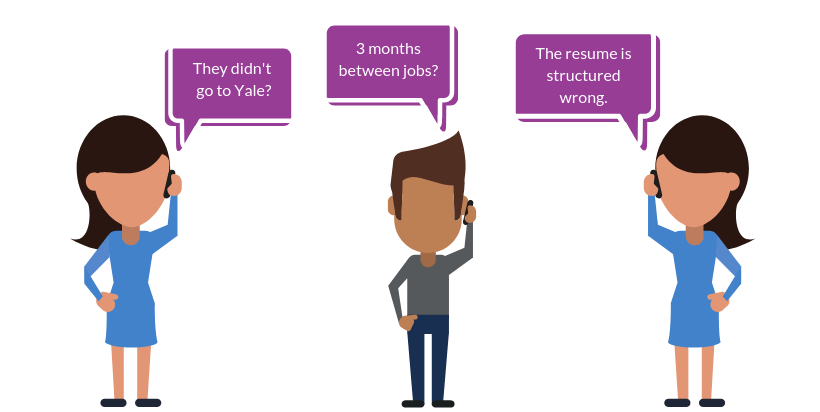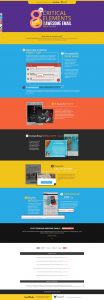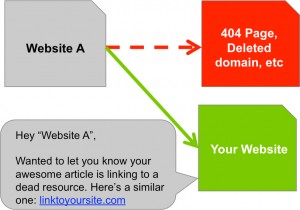— May 30, 2019

With the rate of unemployment declining and the job market tightening, hiring and retaining top talent is harder than ever. To make matters worse, there remain a few antiquated theories on hiring “red flags” that we’ve found to be either outdated or, at the very least, deserve a second look.
At my company, Talent Solvers, which is a recruiting firm specializing in tech, freight and logistics, we speak with incredible talent every day and have the advantage of seeing who performs well over the long-term and who doesn’t. We’ve found that many of the best performers didn’t have every checkbox marked off but, when given the opportunity, far exceeded expectations.
Our experience suggests that often these red flags are more like yellow flags, areas where you can dig deeper to understand, for example, why a candidate had an employment gap or mediocre resume. To help, we’ve outlined a few traditional red flags that need to be re-evaluated, why they’re less relevant today and the questions you can ask to learn more.
Red Flag Number One: When they send a subpar resume.
Many still view a resume as the purest reflection of an individual. Omitted information, the amount of detail and structure all play a role in whether or not to move forward with a candidate. While just about every aspect of work has evolved through the years, the resume remains the ambiguous go-to guide for determining an individual’s professional worth.
“Resumes are a point in time and not reflective of the human,” Penny Queller, SVP and GM of Monster’s staffing business unit, told HR Dive. “There’s nothing on a resume that demonstrates the individual’s aspirational self. It’s a primitive artifact in some regards.”
While a professionally designed resume is a great-to-have, we speak to amazing talent with less than stellar resumes all the time. Here are a few reasons this might be the case:
- 75% of the people you want to hire aren’t looking – they’re passive candidates: If talent is directly reaching out to you for a position, they absolutely should put time and effort into their resume (if you’re requesting one). But, consider that the large majority of top talent is currently employed. If a recruiter is engaging a passive candidate, they’re typically going from phone screen to interview within a matter of days. The candidate simply won’t have as much time to design the ultimate resume as an unemployed, actively searching candidate would. In these cases, it’s important to remember that the resume is only one data point among many that should be considered when holistically evaluating talent.
- Dozens of additional places to learn about a candidate: There was a time when the only way to learn about what somebody accomplished was by looking at their resume. Today, people blog on Medium, speak on podcasts, post on Twitter, share on LinkedIn and otherwise develop their professional brand digitally. Often, the real insight on a candidate’s performance and experience is found with a simple Google search.
- Digital profiles and portfolios can offer significantly more information: Candidates manage LinkedIn profiles, personal websites, portfolios and more today. You can get a bulleted list of accomplishments in a resume, but you’ll learn much more by seeing real-life examples of the work they’ve produced.
If you’re interested in a candidate but they share a mediocre resume, we recommend leaning on your recruiter to evaluate the talent behind the resume. They should start by asking the candidate to share a portfolio, website, digital profiles or other work that will help shine a light on their experience. To accurately and effectively evaluate talent, consider the resume as a single point of information, among many.
Red Flag Number Two: When they don’t have the right degree.
Only hiring Ivy League graduates? Filtering out marketers who don’t have a marketing degree? Can your new engineer only be successful with a CS degree? We often recommend our clients at least be open to the idea of speaking with talented individuals, even if they don’t have a perfectly aligned pedigree. This isn’t because those people don’t exist. Instead, we’ve found that having the exact degree doesn’t necessarily mean they can do the work. Consider the below:
- Hands-on, real-world experience is more indicative of success: Google, Apple, IBM and eleven other large companies no longer require employees to have a college degree. Why? They’ve found time and time again that resume-bolstering factors like your degree and the institution you attended aren’t effective measurements of success on the job. Instead, they look for ability demonstrating indicators such as experience, personal projects, passions and motivators.
- Greater access to digital and alternative learning programs: More than 70% of developers are at least partially self-taught, according to the 2018 Developer Skills Report. If you’re hiring an engineer and only looking at candidates with a CS degree, you’re missing out on thousands of talented individuals. In the same vein, more and more people are furthering their development through alternative learning programs.
- Is diversity important to you? If so, only hiring from Ivy Leagues can have the opposite effect: There’s no shortage of studies indicating that diverse teams are smarter and more innovative. But, you’ll be hard-pressed to promote diversity and inclusion if only hiring from Ivy League schools. There’s a diversity epidemic across top colleges. Blacks and Hispanics are more underrepresented at top schools now than 35 years ago. Diversity means hiring brilliant individuals from different backgrounds, origins and experiences. Hiring “cookie-cutter” teams will keep you from solving unique challenges that require multiple ways of thinking.
We suggest considering, and even searching for, those who may not perfectly match your criteria but can deliver an elevated level of thinking through their diverse experiences. First, define what skills are required for the position and ask questions that will uncover if they have what it takes, such as:
- Tell me about your biggest success story related to (skill)?
- Walk me through the work you’ve accomplished that best compares to what needs to be done in this role.
- Tell me about a time you were the hero in the workplace.
- Tell me about using “XYZ.” (What does this role require? Management experience, coding, project management? Learn how they’ve used each required skill set in previous experiences).
- If you were our CEO, what’s the first thing you would do?
Red Flag Number Three: When it looks like they job hop.
Job hopping is generally defined as spending roughly two years or less in a position. Moving from job to job within a short time frame is traditionally seen as a sign of instability or difficulty getting along with others. While this is sometimes the case, it’s not always as simple as that. We’ve found that there are plenty of reasons for job hopping that should be explored before disqualifying a candidate:
- Companies (especially startups) are incredibly volatile: An estimated 90% of startups fail. For many, the “failing” occurs well before the company actually goes under. Departments and budgets are cut, toxic work environments develop and teams struggle with extreme levels of stress and uncertainty. This can occur just as often in larger organizations during mergers, acquisitions or market downfalls.
- Growth is stunted or there is no defined path: The best employees are constantly seeking to grow and develop. They expect work to be interesting and engaging. They believe commitment is a two-way street and don’t feel the need to “pay their dues” with an inferior employer. For them, staying in a position that doesn’t support their growth too long is a reflection of complacency, low initiative or a lack of drive to take on new challenges.
- Poor work-life balance, pay cuts, negative work culture: We hear a slew of other reasons that could lead candidates to switch jobs. Maybe they moved because their significant other had to take an opportunity in a new city. Sometimes they’re stuck with terrible managers. Maybe they started a family and needed a better work-life balance.
The point to each of these being, you don’t truly know unless you ask. So, what should you ask? To identify why a candidate may have a history of job hopping, start with the oldest question in the book, beginning with their first position and working your way up:
- Why did you leave “X” position and why did you take position “Y”?
Listen for common patterns. Is it always about pay? Are they struggling to get along with coworkers? Dig in deeper to each explanation and objectively determine if the reasons make complete sense or are a cause for concern.
Again, the point is not to completely ignore any of the above flags but rather, know when to ask more questions, understanding that challenges come up in everyone’s career that don’t define their ability to be an amazing addition to your company.

Have you ever made a hire who didn’t look great on paper but exceeded expectations? Tell us about your experience!
Business & Finance Articles on Business 2 Community
(82)
Report Post




